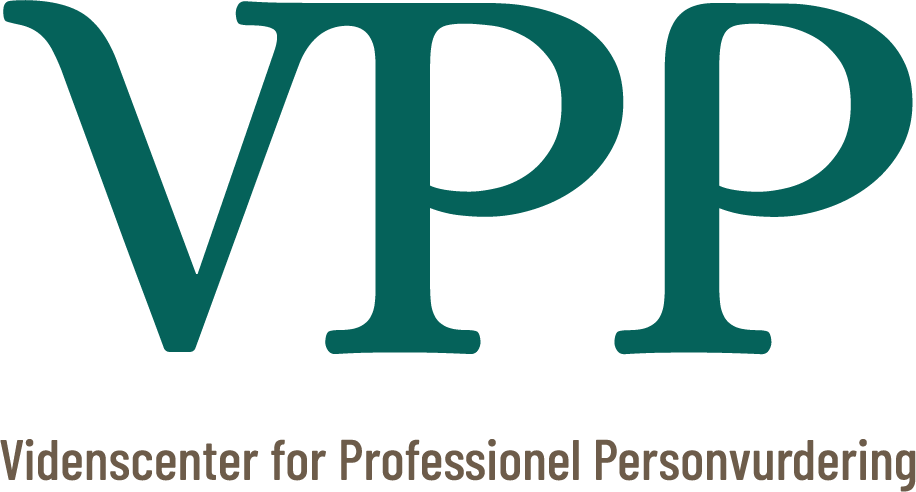VPP - Knowledge Center for Professional Personal Assessment
About VPP
Directly translated Videnscenter for Professionel Personvurdering (VPP) means: “Center for Knowledge of Professional Assessment”. Established in 2005, VPP is a non-profit, member-run organisation that represents everybody concerned with quality and fairness in assessment practices in occupational settings. The reason we use assessment instead of testing is that interviewing, taking references, etc are included too. VPP started as a grassroots movement aimed at making a national code of conduct for quality and fairness in assessment practices in occupational settings. Becoming a national institution we made the grassroots movement a formal association, “VPP”, in 2005, where everybody concerned with assessment in occupational settings can become a member. Our aim has been widened and now includes being an organisation concerned with general knowledge about assessment and assessment practices.
Our structure
The board of VPP consists of 11 members and represent different interest groups:
- Employer Organisations
- Educational Institutions
- Employee Organisations
- Providers of Assessment Tools and Consulting Services
- Users of Assessment Tools
- Other members
See our up-to-date member list here - Link
Organisation
The board is elected and a plan for the coming years is created at the annual board meeting. Additionally, four meetings are held every year for members where relevant subjects are discussed. Finally, a lot of development in VPP comes from work done in small voluntary groups. Based on interests small groups meet to discuss and formulate policies, procedures, and methods in regards to assessment in professional settings.
An Annual Conference
Every year, VPP organises a conference for all members. The aim of the conference is to bring new knowledge into discussion and to influence the future work in VPP. Moreover, an evaluation of the present standards and a discussion of future standards take place.
A Brief Historical Overview
In 1997 an initiative concerning personnel assessment and selection was taken by three large test publishers. The initiative addressed the increased use of testing and structured personnel assessment and aimed at presenting quality norms relating to interviewing, testing and reference taking. A draft of suggested standards was written and everyone with interest in personnel assessment and selection, i.e. test publishing firms, consultancy firms, private and public organisations, and the end users (job applicants) were invited to attend a conference with the aim of debating and refining the standards.
Prior to the initiative, criticism of the lawless practises of personnel assessment had made headlines in newspapers and other media.
The first initiative was backed by large parts of the Danish consultancy world - by firms and by organisations. After the first conference was held in September 1997 a group (called the Reference Group) was formed to further discuss the proposed standards and to rewrite them. Also, the members of the group were to be unofficial ambassadors of good personnel practise, and to ensure that all opinions were taken into account. The standards have since been reviewed and rewritten on an ongoing basis.
Since the first conference The Reference Group has consisted of 15-25 persons that have been debating and (re)writing standards and preparing conferences. They represent firms and private and public organisations. Apart from the two main initiators the involvement of the Danish Psychologist Organisation should specifically be mentioned. The involvement and support of the DPO has furthered the knowledge of and the acceptance of the suggested standards.
Just before the present organisation VPP was created, the first chairman wrote:
As the historic view should indicate quite a lot of activity has been going on and results have been made. However, realistically the standards still exist on a fragile basis:
- The debate and the maintenance of the standards is totally based on voluntary work from people who think that this is such an important issue that they give their own and their firms’ time to further the issue
- The standards are still a “hidden secret” to many firms and organisations. As a voluntary organisation the Reference Group” has not had sufficient resources to market their knowledge and views professionally
The standards have no legal or other consequence. Any firm can sign up that they adhere to the standards, but there is no guarantee that this is actually the case. The work is thus based on a very high degree of trust, which sometimes has given rise to frustration when stories of malpractice arise.

